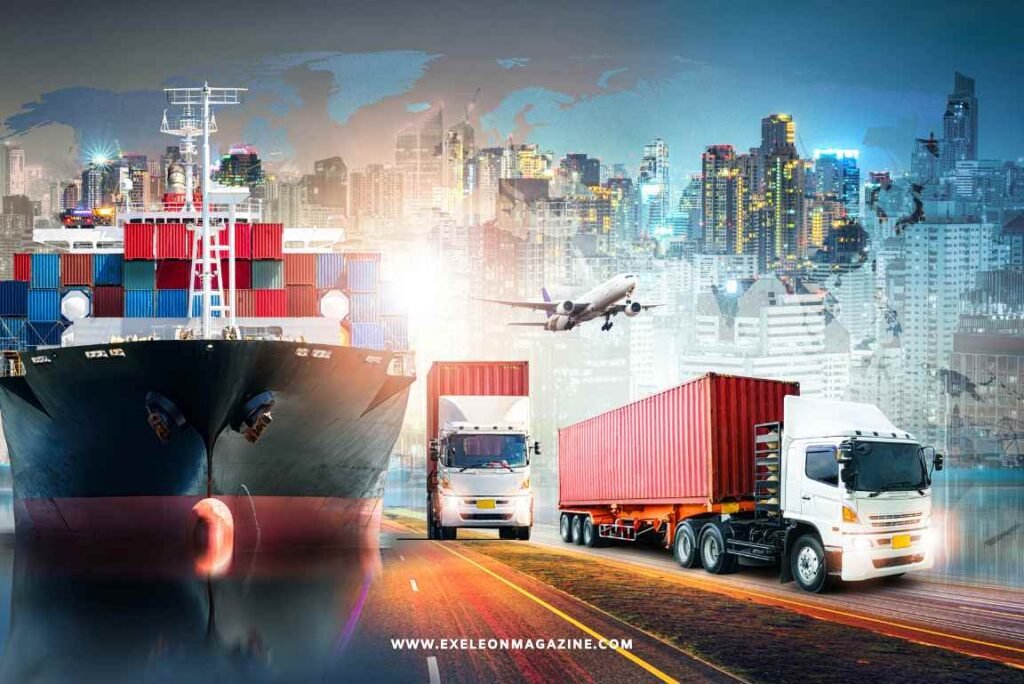Global shipping has become anything but simple.
Companies are moving products across continents faster than ever, but with that speed comes more pressure. Delays, paperwork, customs, and coordination across different time zones all pile up.
That’s where freight forwarders come in. They’re the people behind the curtain making sure everything moves as planned.
Most businesses don’t realize how much work goes into getting a container from point A to point B.
Freight forwarders make that happen without making it your problem.
What Freight Forwarders Really Do
Freight forwarders aren’t just middlemen. They’re the ones making sure shipments move on time, stay within budget, and pass every border checkpoint without issues.
They handle the entire process — booking cargo space, filling out paperwork, dealing with customs, arranging storage, and choosing the best route. They make global trade less stressful for companies that just want their goods delivered.
They also deal with the mess when things don’t go according to plan. Weather delays, port congestion, strikes — you name it. When chaos hits, freight forwarders know who to call and what to do. That kind of network takes years to build. It’s not something a company can figure out overnight.
What separates good forwarders from bad ones is their ability to predict problems before they hit. They don’t wait until the shipment’s stuck at customs. They plan for what might go wrong and build backup plans into the process. It’s a mix of relationships, planning, and fast decision-making. Most companies would rather outsource that headache.
There’s also the added benefit of scale. Freight forwarders move large volumes for multiple clients, which often gives them better rates with carriers.
A business trying to move one or two containers might get charged more. With a forwarder, you get better deals without doing the negotiating yourself.
Freight Forwarders Make Supply Chains Run Smoother
Supply chains rely on timing. If one shipment gets delayed, it can affect production, sales, and even customer satisfaction.
Freight forwarders help keep that timing under control. They choose the best routes, avoid risky ports, and work with reliable carriers. That kind of planning keeps goods flowing even when the world throws curveballs.
They also help save money. A missed deadline or customs delay can be expensive. Forwarders reduce that risk. They know how to avoid extra fees, speed up customs checks, and prevent re-routed shipments. For companies shipping internationally, that peace of mind is worth a lot.
Then there’s the visibility part. Most freight forwarders offer shipment tracking. Some use tech platforms that let companies see exactly where their goods are. This kind of transparency helps businesses make better decisions. No one wants to sit in the dark waiting for an update.
A good example is the Ship4wd freight forwarding service, which combines tech and service into one package. It gives small and mid-sized businesses the tools and guidance usually only available to big players. That mix of tech and hands-on support is becoming more common and helps forwarders stay relevant in a fast-moving industry.
And it’s not just about moving cargo anymore. Forwarders are starting to offer value-added services like insurance, warehousing, and last-mile delivery. They’re turning into full supply chain partners rather than just transportation coordinators.
Supporting Resilience Through Better Planning
Freight forwarders play a big role when things go sideways. Supply chain issues aren’t rare anymore — they’re expected.
Whether it’s port closures, political conflict, or sudden regulation changes, forwarders help companies stay flexible. They can quickly shift cargo to a different route or port without slowing everything down.
That kind of speed is only possible with good planning and access to private market intelligence.
Some forwarders have entire teams tracking market trends, shipping rates, and potential disruptions. They use that data to spot problems early. If fuel prices are spiking or a major port is about to shut down, they adjust.
This kind of planning is especially useful for companies that rely on just-in-time inventory. A missed shipment isn’t just a delay — it could shut down production. Forwarders help avoid those risks by thinking ahead. They also give advice based on past trends, not just guesses.
In some cases, they even coordinate between manufacturers, suppliers, and retailers to keep everything moving. That type of coordination turns them into more than service providers. They’re part of the decision-making process.
And with more companies trying to reduce single-country reliance, freight forwarders are becoming key players in setting up diversified supplier routes. They help identify new trade paths and make them work.
Why They Matter More Than Ever
Freight forwarders are no longer just order takers. They’re problem-solvers who understand the bigger picture.
As trade rules change and customer expectations get higher, companies are looking for smarter ways to ship. Forwarders are filling that gap by bringing experience and speed to the table.
They also help companies expand. If a business wants to enter a new market but has no idea how to handle the shipping, the forwarder steps in. They guide the setup, figure out local compliance rules, and get the cargo moving. That helps smaller companies grow globally without massive overhead.
In many cases, forwarders have become part of the sales process too. If a company can promise faster, more reliable delivery than a competitor, that becomes a selling point.
It’s not just about product quality anymore — it’s about availability and timing.
Technology will keep changing how freight forwarding works, but the core value stays the same.
Companies need someone to take on the headaches of global shipping so they can focus on what they’re best at. Freight forwarders are still that someone.
Their role keeps growing as supply chains stretch across more borders and face more pressure. They don’t just move containers. They keep global trade moving — no matter what happens next.










